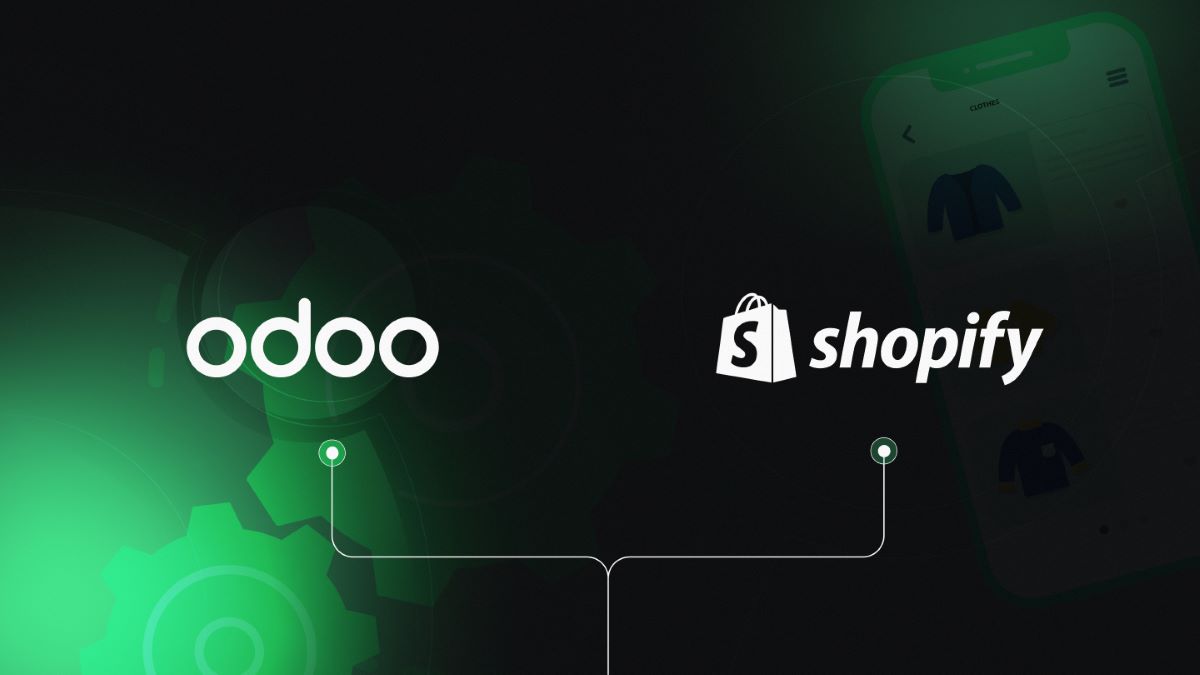
Search Product Discovery in ChatGPT – A New Era of Online Product Search
E-commerce is entering the next stage of transformation driven by artificial intelligence (AI). More and more often, we hear about ChatGPT eCommerce – the use of AI language models in online retail. The latest example is OpenAI’s newly announced Search Product Discovery feature, which brings intelligent AI-powered product search into ChatGPT. In practice, this means ChatGPT can now act as a virtual shopping assistant: answering users’ product-related questions with suggestions of specific items, along with details, images, and links to stores. In this article, we explain what this feature is, how it works, and what it means for online store owners and e-commerce managers. We’ll also highlight what to pay attention to (especially if you run a store on Shopify) and how AI-driven conversational commerce may shape the future of online shopping experiences.

AI in E-commerce – The Growing Importance of Artificial Intelligence in Online Retail
In recent years, artificial intelligence has firmly established itself in e-commerce. From product recommendations in online stores, through customer service chatbots, to personalized newsletters – AI in eCommerce supports sales and enhances the customer experience. We are now entering a stage where generative AI, such as ChatGPT, is becoming an active participant in the shopping process. Major platforms are investing in conversational commerce. Shopify is developing its own AI tools (e.g., Shopify Magic, the Sidekick assistant), while Google is testing AI-generated answers in search results. OpenAI went a step further, integrating GPT-4’s capabilities with web search – resulting in the new Search Product Discovery feature in ChatGPT. This is part of a broader trend in which voice or text interaction with AI can become as natural as typing queries into a search engine.
Search Product Discovery – ChatGPT as a Product Search Engine
The new ChatGPT feature can recognize when a user is looking for a product and present product recommendations as part of the response. When a user asks a question indicating purchase intent – for example: “What gift for someone who loves cooking?” or “The best wireless noise-canceling headphones under $200” – ChatGPT can generate a list of matching products with descriptions, prices, images, and links to stores where they can be purchased. Importantly, these are not ads or sponsored results – ChatGPT independently selects results based on its knowledge and web data, and the recommendations are not paid. In other words, in a conversation with AI we can receive concrete shopping suggestions instead of a traditional list of links.
This feature was initially launched for selected categories (including fashion, beauty, home goods, electronics) but will gradually cover more industries. ChatGPT not only shows the product image and price, but can also include ratings and reviews, while clicking takes the user to the store page to complete the purchase. All this happens within the conversation – the user does not need to leave the chat window to browse recommendations. This type of AI product search combines the advantages of natural conversation with up-to-date store offers.
How Does It Work? ChatGPT Integration with Websites and Stores
Where does ChatGPT get its product information from? Its web search capabilities have been expanded with a dedicated web crawler called OAI-SearchBot. It works similarly to Google or Bing crawlers – scanning websites for product data, using structured data (schema.org) and product feeds provided by e-commerce platforms. If the user’s query looks shopping-related, ChatGPT can send a request to the web, and based on collected data, present a list of products matching the query.
Integration with online stores happens in several ways:
- Site crawling – Every public store page can be indexed by OAI-SearchBot, unless blocked in the
robots.txtfile. That’s why it’s important to make sure the store does not block access (by default most do not, but it’s worth checking). - Structured data (schema) – ChatGPT pulls information from structured data embedded in site code (e.g., JSON-LD tags describing product, price, availability, reviews). OpenAI confirms that product data comes from site metadata and external feeds. The better the products are described (according to schema.org standards), the higher the chance AI will correctly identify and recommend them.
- Partnerships and feeds – OpenAI partners with e-commerce platforms to enrich its product base. For example, in August 2025, integration with Shopify was announced – joining Bing as an official partner providing product data to ChatGPT. This means the assistant can directly include products sold by hundreds of thousands of Shopify stores. Previously, ChatGPT results were dominated by large marketplaces (like Amazon); now, smaller stores and brands using Shopify and other solutions are included. Early tests showed ChatGPT displaying detailed product cards – with images, prices, descriptions, and even seller names – sourced from structured data shared by partners.
- Direct product submission – OpenAI is working on a mechanism allowing merchants to directly provide product feeds to ChatGPT. For now, an interest form is available for stores that want to participate and be notified when direct feed submission is open. Ultimately, this will ensure fresher and more accurate data directly from merchants.
It’s important to note that any website can appear in ChatGPT’s results – no official partnership is required. What matters is not blocking access and providing clear product information. OpenAI also ensures that sites will see traffic coming from ChatGPT: every outbound link includes tracking parameters (e.g., utm_source=chatgpt.com). This way, store owners can monitor in Google Analytics how many visitors come from ChatGPT recommendations.
Benefits for E-commerce: Personalization, Conversions, and a Shorter Shopping Journey
The Search Product Discovery feature is more than a gadget – it can significantly impact customer behavior and sales metrics. Here are the main potential benefits for online stores:
- More personalized recommendations. ChatGPT uses a conversational search model, aiming to understand user context and preferences better than traditional search engines. Instead of just matching keywords, it analyzes full user statements (e.g., “Looking for a gift for a teenager interested in photography”) and selects products that truly fit the need. Unlike static algorithms, ChatGPT can learn preferences during the conversation. According to OpenAI, shopping conversations will become more personal – if a user mentions preferring black clothes from a specific seller, ChatGPT will remember and adapt future recommendations. This can increase the accuracy of suggestions and customer satisfaction.
- Higher conversions by shortening the path. ChatGPT can significantly shorten the shopping journey, merging product discovery and decision-making in one conversation. Instead of multiple searches, comparing sites, and reading reviews, the user gets a condensed answer – e.g., three top product suggestions with brief explanations and a purchase link. This is close to zero-click commerce, where the entire process from query to choice happens within the chat. For customers, it means convenience and time savings; for stores – higher conversion rates, since the user is guided directly to purchase. Presenting products in an attractive format (image, price, rating) in one place can also grab attention more effectively than text links.
- Lower customer acquisition cost (CAC). If ChatGPT generates significant shopping traffic, it could become a valuable free channel to reach customers at the buying-intent stage. Unlike PPC ads, there is currently no cost per click – what matters is how well products match the query. Brands whose offers are picked up and recommended by AI can gain customers without ad spend, reducing CAC.
- A new way to build trust and brand awareness. If your product appears as a ChatGPT recommendation, it carries the credibility of expert advice. ChatGPT cites sources and links to stores, so users see where the product comes from. For smaller brands, this is a chance to appear alongside giants in responses to general queries (e.g., a niche skincare shop shown alongside Sephora for “best cream for sensitive skin”). This greater product visibility expands brand awareness.
Of course, new challenges come with these benefits. Stores will compete for a spot in AI answers, just as they do for Google rankings. It may happen that users rely only on a few ChatGPT suggestions without exploring the wider market – making the quality and accuracy of product data critical.
Recommendations for Store Owners (Shopify and Beyond)
How to prepare your online store for the conversational commerce era? Here are some practical tips:
- Make sure your store is visible to ChatGPT. Check your
robots.txtsettings – **do not block access for **``. Ensure site performance is good, so the bot can crawl efficiently. - Provide structured and complete product data. Implement schema.org microformats for product pages (title, description, price, availability, reviews, etc.). Rich, structured data increases the chance AI will correctly interpret and recommend your product. Keep data updated.
- Optimize content for questions and conversations. Traditional SEO focused on keywords; now, context and natural language matter. Add FAQs, usage explanations, and contextual product descriptions. Well-structured content helps both customers and AI.
- Use multimedia and alt text. Since ChatGPT displays product images, ensure high-quality photos and descriptive alt text. This increases the chance AI will correctly match images to queries.
- Monitor this new channel. Add
chatgpt.comas a traffic source in analytics and track how many visits and sales it generates. Adapt your offering based on observed patterns.
Conversational Commerce and the Future of Online Shopping
The arrival of product search in ChatGPT is part of a bigger change redefining the online shopping experience. We are entering the era of conversational commerce – customers no longer click and filter, but talk to an AI assistant acting as a sales consultant. Unlike human consultants, AI has access to an enormous knowledge and product base.
What can we expect in the near future?
- The entire shopping path will move to conversation. Work is underway so that in ChatGPT, users can not only find products but also purchase them directly without leaving the chat. Media reports suggest OpenAI is developing a checkout feature with Shopify.
- New players and AI ecosystems in commerce. ChatGPT’s success will inspire others. Google is developing its Gemini model tied to Google Merchant Center, while independent AI search engines (like Perplexity or Claude) are also experimenting with shopping results.
- Evolution of classic SEO and marketing. As AI becomes central to product search, traditional search results may decline in importance. Marketers are already considering AI SEO – optimization for AI algorithms.
In summary, conversational commerce powered by AI is potentially a revolutionary change in e-commerce. For customers, it means convenience and faster decisions. For sellers – new opportunities but also the need to adapt.
When will Shopify stores start selling in ChatGPT?
On September 29, 2025, OpenAI launched Instant Checkout in ChatGPT in the U.S. (initially piloted with Etsy sellers). Support for Shopify merchants has been officially announced as “coming soon” and will be rolled out in phases, starting with the U.S. market — this comes directly from OpenAI’s announcement and Shopify’s Newsroom updates.
As of now, there is no general availability (GA) date; a rolling onboarding process is underway through a sign-up form for stores. The current scope includes single-item checkout, while the roadmap includes multi-item cart support and regional expansion.
Product recommendations in ChatGPT remain organic (non-sponsored), and for merchants, the only cost involved is the commission on completed transactions.
Summary: A New Chapter in E-commerce – Is Your Store Ready?
The Search Product Discovery feature in ChatGPT is a concrete preview of what’s coming to online retail. AI in e-commerce is no longer futuristic – it’s a practical tool already reshaping the game. Stores that understand this shift and adapt early – from AI-optimized content and structured data integration to monitoring new sales channels – will gain a competitive advantage.
Store owners: consider now how your products look through the eyes (or algorithms) of an intelligent assistant. Are your product details complete and AI-readable? Is your store ready for conversational commerce? Just as shops once had to master SEO, now it’s time for AIO – AI Optimization.
This shift doesn’t end traditional methods, but early adopters will reap the first rewards. ChatGPT as a recommending seller is not a distant future – it’s happening now. Use this chance to secure your brand’s visibility in the new ecosystem.



